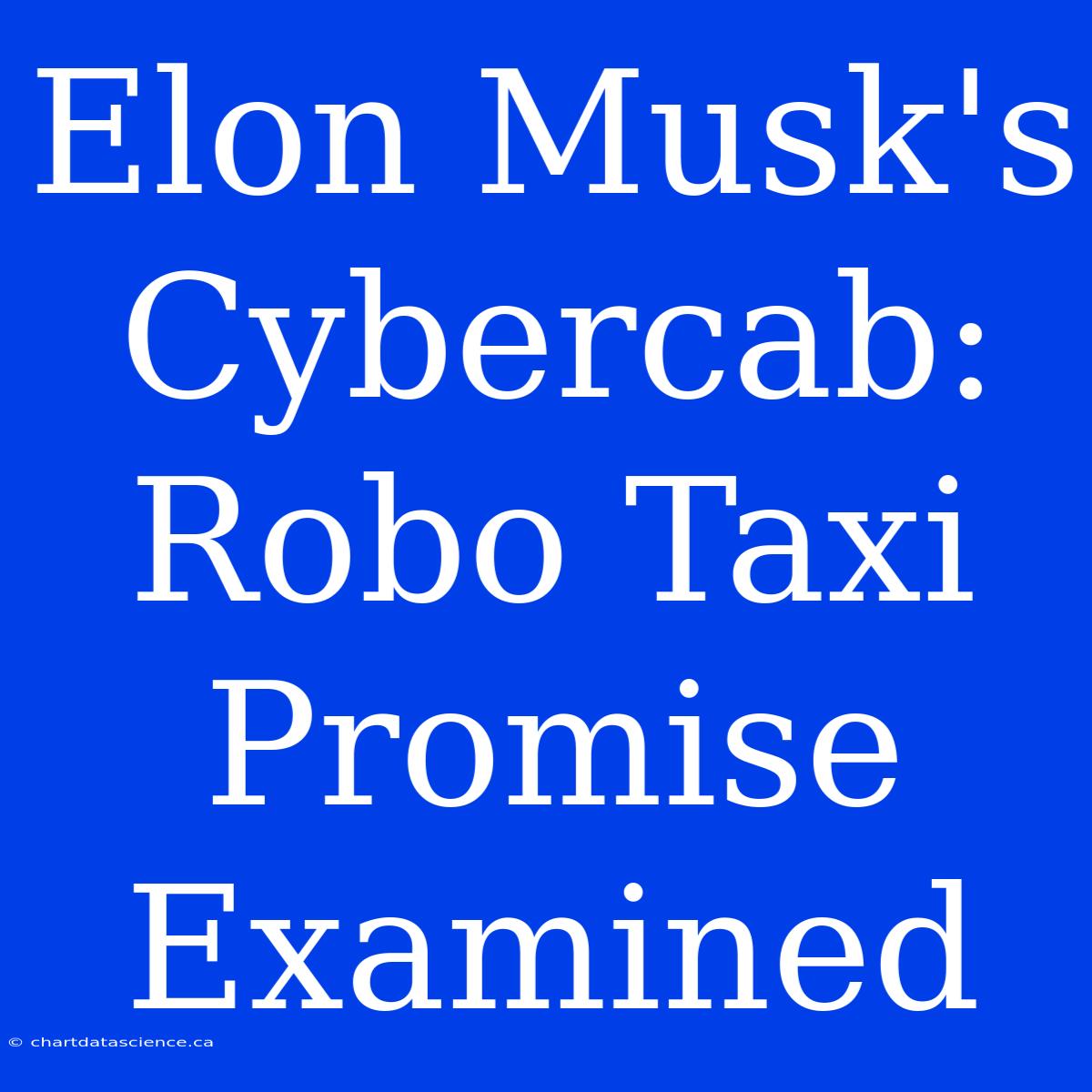Elon Musk's Cybercab: Robo Taxi Promise Examined
Elon Musk's vision of a future filled with self-driving taxis, dubbed "Cybercabs", has captured the imagination of many. But is this revolutionary transportation concept a realistic possibility, or just another ambitious promise from the tech mogul? Let's delve into the potential of the Cybercab and examine the challenges it faces.
The Promise of Driverless Convenience
The idea of hopping into a self-driving car, requesting a destination, and relaxing without needing to worry about driving is undeniably appealing. Cybercabs, powered by Tesla's Full Self-Driving (FSD) technology, could revolutionize urban mobility. Imagine a world where:
- Congestion is reduced as optimized routes and traffic flow are managed by AI.
- Accessibility is enhanced for people who can't drive, the elderly, or those with disabilities.
- Time is saved through efficient routes and automated driving.
However, the path to this utopian vision is paved with significant roadblocks.
Technical Hurdles
The key to the success of Cybercabs is the reliability and robustness of FSD technology. While Tesla's FSD has made significant strides, it still faces challenges:
- Edge Cases: Real-world driving scenarios, especially in complex environments like heavy traffic or adverse weather, can be difficult for AI to handle.
- Safety Concerns: Accidents involving autonomous vehicles have raised concerns about the safety of the technology. Ensuring passenger safety is paramount.
- Legal and Regulatory Landscape: The legal framework for autonomous vehicles is still evolving, with varying regulations across different countries.
The Business Model Puzzle
The economics of Cybercabs also pose a significant challenge.
- Cost of Development and Deployment: The development of self-driving technology and the large-scale deployment of Cybercabs require significant investments.
- Competition: Tesla is not alone in the race for autonomous vehicles. Other companies, such as Waymo and Cruise, are also developing self-driving technology and pursuing similar business models.
The Future of Cybercabs
Despite the challenges, Elon Musk's vision of Cybercabs holds immense potential. Continued advancements in AI, sensor technology, and regulatory frameworks could lead to a future where self-driving taxis become a ubiquitous reality. However, the timeline for this future remains uncertain.
The success of Cybercabs hinges on overcoming the technical, regulatory, and economic hurdles. Only time will tell if this ambitious dream will become a tangible reality, or remain a futuristic fantasy.

